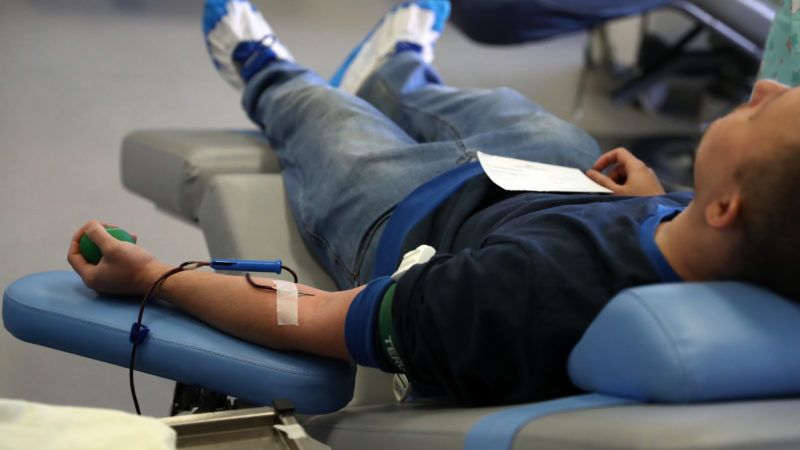FDA Will Finally Let Gays Donate Blood—If They Wait 3 Months After Having Sex
Before this, the wait period was a year.

The Food and Drug Administration (FDA) has relaxed another senseless regulation to help fight COVID-19: Gay and bisexual men will now be able to donate blood more easily.
U.S. medical centers have been facing a major blood shortage, as drives were canceled en masse amid the spread of the coronavirus. The updated FDA rules are expected to remain in place after the COVID-19 emergency has been lifted.
Previous agency guidance mandated that men who have sex with men abstain from that behavior from a full year before donating blood—even though every blood donation is screened for HIV. The FDA has now eased that period to a three-month deferral, which makes much more sense given current testing capabilities. When the U.K. instituted a similar three-month deferral, it saw no increase in HIV-infected blood. As I wrote Monday:
Paramount to this discussion is the safety of the blood supply—endangering that is certainly not worth sparing any one group's hurt feelings. Calls to remove deferrals entirely for potentially risk-prone individuals make little sense. But current testing capabilities do support relaxing gay and bisexual men to a three-month deferral rate, which may even increase compliance among donors who would otherwise lie in the face of ridiculous waiting periods.
Those with new tattoos and piercings and those who have recently been to malaria-endemic areas will also be deferred for three months, as opposed to the previously mandated yearlong waiting period.
Until 2015, the FDA enforced a lifetime ban on blood donations by men who have sex with men. That rule may have made sense in the 1980s, when it was instituted against the backdrop of the AIDS crisis. But blood testing capabilities have made leaps and bounds sense then. Every donation is tested for the full slate of blood-borne infectious diseases, including syphilis, hepatitis, human T-lymphotropic virus, and HIV.
Although those newly infected with HIV may initially test negative, current methods can detect the virus 9 to 11 days after transmission, rendering the yearlong deferral nonsensical. The regulation was particularly confusing in light of the fact that the screening procedure does not discriminate against heterosexuals engaging in high-risk sexual practices. A man who has slept with several women in the span of a week would be able to donate blood without question; a gay male whose last sexual encounter was six months past would have been turned away.


Show Comments (31)